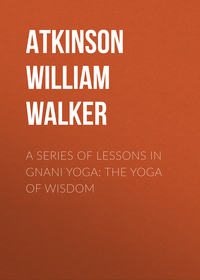 полная версия
полная версияThe Psychology of Salesmanship
XI. Approbativeness. This is the quality which manifests in a desire for praise, flatter, approval, fame, etc. The average Salesman does not need to develop this faculty – his temperament is very apt to make him have it too highly developed. It is all very well to feel a certain pleasure from the approval of others of work well done. But it is a decided weakness for one to be so sensitive to the opinions of others that they suffer from their disapproval, or from the lack of praise. He who is dependent upon the praise of the crowd, or the approval of the mob is a fool, deserving of pity. The crowd is fickle and tomorrow may turn on those whom they are praising to-day. Moreover there is always much secret envy and jealousy mixed with the praise of others.
Did you ever notice how eagerly people relate the slip-up or stumble of those whom they have been praising? Be not deceived by the plaudits of the crowd. Nor should you allow yourself to be deterred from a right course because of fear of blame. Learn to rely on what you, yourself, know to be right. "Be sure you're right, then go ahead." Learn to stand upon your own feet, and do not lean upon others. Shake the crowd off your heels – mind your own business and let others do likewise. And look the world squarely in the eye while you are talking to it, too. It will understand you, if you do not truckle to it. But never cringe to it – else it will rend you to pieces. "They say; what do they say; let them say!" "Do not worry about it – your friends will not care, and your enemies will criticise anyway; so what's the use?" Say to yourself: "I am the Captain of my Soul." And remember Burton's glorious words of freedom and courage:
"Do what thy manhood bids thee do, from none but self expect applause;He noblest lives and noblest dies who makes and keeps his self-made laws.All other Life is living Death, a world where none but Phantoms dwell.A breath, a wind, a sound, a voice, a tinkling of the Camel's bell."The difference between Egoism and Egotism consists largely of the difference between Self-Respect and Approbativeness. Develop the first, and restrain the second – if you wish to become an Individual. And the successful Salesman is always an Individual – standing out from and above the crowd of the "mere persons" or "order-takers." Be a Man, and not a human looking glass reflecting the ideas, opinions, and wishes of all those around you. Be creative, not imitative. Flattery is the food for apes, not for men.
Personal Expression. While one's personal expression in the direction of clothing, walk, voice, etc., can scarcely be called mental qualities, yet they must be considered as expressions of mental qualities – outward manifestations of inward states. So true is this that people naturally judge one's character by these outward expressions. And, moreover, there is a subtle reaction of one's outward manifestations upon one's mental states. One's walk, carriage and demeanor influence one's mental attitude, as we may prove by changing these outward manifestations and noting our changed feelings. As someone has said: "The consciousness of being well dressed imparts a certain serenity and peace which even religion sometimes fails to give us."
And, as for physical attitudes, etc., hear what several eminent psychologists tell us. Prof. Halleck says: "By inducing an expression we can often cause its allied emotion." Prof. James says: "Whistling to keep up courage is no mere figure of speech. On the other hand, sit all day in a moping posture, sigh, and reply to everything with a dismal voice, and your melancholy lingers. There is no more valuable precept in moral education than this: If we wish to conquer undesirable emotional tendencies in ourselves we must assiduously, and in the first instance cold-bloodedly, go through the outward movements, of those contrary dispositions which we wish to cultivate. Smooth the brow, brighten the eye, contract the dorsal rather than the ventral aspect of the frame, and speak in a major key, pass the genial compliment and your heart must indeed be frigid if it does not gradually thaw."
Dr. Woods Hutchinson says: "To what extent muscular contractions condition emotions, as Prof. James has suggested, may be easily tested by a quaint and simple little experiment upon a group of the smallest voluntary muscles of the body, those that move the eyeball. Choose some time when you are sitting quietly in your room, free from all disturbing thoughts and influences. Then stand up, and assuming an easy position, cast the eyes upward, and hold them in that position for thirty seconds. Instantly and involuntarily you will be conscious of a tendency toward reverential, devotional, contemplative ideas and thoughts. Then turn the eyes sideways, glancing directly to the right or to the left, through half-closed lids. Within thirty seconds images of suspicion, of uneasiness, or of dislike will rise unbidden to the mind. Turn the eyes on one side and slightly downward, and suggestions of jealousy or coquetry will be apt to spring unbidden. Direct your gaze downward toward the floor, and you are likely to go off into a fit of reverie or abstraction." Maudsley says: "The specific muscular action is not merely an exponent of passion, but truly an essential part of it. If we try while the features are fixed in the expression of one passion to call up in the mind a different one, we shall find it impossible to do so."
In view of the above statements, we may readily see the importance of cultivating those outward expressions which are co-related to desirable mental states or feelings. By so doing we arouse in our minds those particular states or feelings. And, moreover, we tend to impress others with the possession on our part of the co-related mental qualities. One's outward expression is a powerful instrument of suggestion to others, and people are unconsciously and instinctively affected by it, to our benefit or detriment. Let us therefore consider, briefly, the general principles underlying personal expression along the lines indicated.
Carriage and Walk. In the first part of the previous chapter, under the sub-head of "Self-Respect" we have given you the advice of a good authority concerning the proper carriage. The key is: Carry yourself in a manner showing your Self-Respect, Poise, and Consideration of Others. Another authority gives the following directions for the correct position in standing: "(1) Heels together; (2) head up, with chin slightly drawn in rather than protruding; (3) eyes front; (4) shoulders thrown back but not elevated; (5) chest expanded; (6) abdomen slightly drawn in, and not allowed to protrude; (7) arms dropped naturally to the sides, with the little fingers lightly touching the sides of the thigh. This may make you feel a little stiff and awkward at first, but, if you persevere, will soon establish itself as second nature with you."
Another authority says: "The easiest way in which to acquire a correct carriage is to imagine that you are suspended from on high with a line, the lowest end of the line being fastened to the lower end of your breast-bone. If you will stand and walk as if you are so suspended, the result will be that you will acquire an easy, graceful, gliding walk, and a correct carriage and natural position." Another authority gives the following advice: "The following method if observed in walking and standing, will impart a desirable physical poise and will keep you erect and in a graceful attitude while walking: Stand with your back toward the wall, with the heels, legs, hips, shoulders and back of head touching the wall, and with the chin slightly drawn in. Press up against the wall firmly. You will find yourself in an uncomfortable position, and one that is unnatural and incorrect. Then, keeping your heels to the wall, allow your body to swing forward into a natural position, being careful to keep the body firm in the same 'form,' avoiding relaxation, swinging yourself forward from the ankle joints alone. When you find that the correct poised, natural position has been attained, hold it, and march forward in what will be the natural, normal, well-balanced walking position. Practice this repeatedly, several times every day, until you have fully acquired the habit."
Shaking Hands. When you grasp another's hand in the act of "shaking hands," do not do so in a listless, cold-blooded manner – do not extend to the other man a flabby, clammy, fish-like hand. But take hold of his hand as if you liked to do it – throw interest into the proceeding. More than this – throw feeling into it. Throw into the hand-clasp the feeling: "I like you, and you like me." Then, when you draw your hand away, if possible let your fingers slide over the palm of his hand in a caressing manner, allowing his first finger to pass between your thumb and forefinger, close up in the crotch of the thumb. Practice this well, until you can perform it without thinking of it. You will find merit in the method. Grasp the other person's hand "as if he were your best girl's millionaire father-in-law."
Voice. The Salesman should cultivate a voice with expression in it. His voice should convey his belief in what he is saying, and his interest in the story. You will find it an aid in this direction if you will learn to visualize your thoughts – that is, to make a mental picture of the thing you are saying. One can always describe better that which they see before them. In the degree that you can see your mental picture, so will be your degree of power in expressing it to another in words, and so will be the degree of feeling in your tone. The voice should express the meaning of your thought rather than being merely the symbol of it. Try to say "Good Morning" as if you meant it – then say it in the usual way. Do you see the difference? Throw your thought and feeling into your voice. Forget all about yourself and the other man and concentrate your thought and feeling into your voice.
Many people make the mistake of "speaking with their muscles instead of with their nerves." They throw muscular energy into their words, when they should use nervous energy, or thought-force. The former has but little effect on the mind of the other, while the second vibrates subtly and reaches the feelings of those addressed. Feel, when you wish to speak impressively, and your tones will reflect the same, and induce a similar feeling in others. It is a point worth remembering that one may "bring down" the voice of an excited person to one's own pitch, if the latter is firmly held at the customary pitch, in a firm manner. Not only does this "bring down" the other man's voice, but his feelings will also follow suit, and besides, you also manage to keep your own temper and poise. Never raise your voice because another raises his – resist the tendency, and maintain your poise and power by so doing. This is worth remembering.
The Eyes. Learn to look people in the eyes when you are speaking to them. Not in a staring manner, but firmly, politely and easily. This may be acquired with a little practice. Practice on yourself in the mirror if you prefer. A shifting, restless gaze produces a bad impression, while a firm, honest gaze will incline people in your favor. You will find that strong men – men who influence others – almost always have a firm, strong gaze. It is worth practice, work and time, to acquire this personal trait.
Clothes. A man is very often known by his clothes, or at least judged by them. The Salesman should pay attention to this point of personal expression, since it will count much for or against him. The first point to remember is that cleanliness is the first requisite in clothing. Keep your clothes clean and well pressed. Particularly keep your linen clean, for nothing in the way of dress acts so much against a man as soiled linen. Another important point is to keep the extremities well clad – that is, the head, feet and hands. A soiled or worn hat; a soiled or frayed collar; an old, or unpolished pair of shoes; ragged sleeves or frayed cuffs – these things are more easily noticed and count more against a man than a shabby suit. Better an old suit well brushed, with a good hat, shoes and clean cuffs – than the reverse.
One should always wear as good clothes as his means will permit, and such as will be in keeping with his occupation and position. The rule is to get as good material as possible, and cut reasonably within the prevailing style – but avoiding all extremes, or fanciful designs. A well-dressed business man should give neither the appearance of shabbiness nor of being "dressed-up." He should present the appearance of general neatness without attracting any special attention to his clothing. When a man's clothes specially attract one, that man is not well dressed, but either poorly dressed or over-dressed. The "happy mean" between the two extremes is to be sought after. Polonius' advice to his son is well worth memorizing: "Costly thy habit as thy purse can buy, but not expressed in fancy; rich, not gaudy; for the apparel oft proclaims the man."
Details of Appearance. Personal cleanliness and neatness are pre-requisites of the Salesman who wishes to produce a favorable impression. There is nothing that will so tend to prejudice the average business man against a new caller as the appearance of neglect of personal care. The body should be well-bathed; the hair trimmed and neatly brushed; the face cleanly shaven; the teeth well brushed; the nails clean; the shoes polished; the necktie and collar clean; the clothes brushed. Avoid the smell of liquor or tobacco on the breath, and eschew as fatal the odor of strong perfumery on the clothes or handkerchief. The yellow stains of the cigarette showing on the fingers, and the disgusting odor attaching to the cigarette habit, have lost many a man a favorable bearing. The cigarette is "taboo" to many men who smoke other forms of tobacco. These things are instinctively recognized by the buyer as manifestations of the mind of the salesman – a part of his personality – and very rightly so, for if the mind be kept above them they do not manifest. All these things go toward forming the impression which one person always makes upon another at the first meeting, and which have so much to do with securing a favorable notice during the Approach of the Salesman.
CHAPTER IV
THE MIND OF THE BUYER
The second important element in a sale is the Mind of the Buyer. In the mind of the buyer is fought the battle of the sale. Within its boundaries are manifested the movements which win or lose the day. As a writer on the subject has said: "The buyer's brain is the board upon which the game is played. The faculties of the brain are the men. The salesman moves or guides these faculties as he would chess men or checkers on a board." In order to understand the ground upon which your battle must be fought, and the mental elements which you must combat, persuade, move, push or attract, you must understand the various faculties of the mind, as well as the mind as a whole. Let us, therefore, consider the various mental faculties which are employed actively by a buyer in the mental process of a purchase.
I. Quality. In the first place, let us consider that which the phrenologists call "Quality," by which they express the various degrees of fineness or coarseness in a man's mental make-up which is usually indicated by his appearance and physical characteristics. This "quality" in a man is akin to what we call "class," "breeding," or "blood" in the higher animals. It is difficult to explain, but is universally recognized. At one extreme of "quality" we find those individuals who are fine-grained, refined, high-strung, intense, and inclined to be susceptible to emotional or sentimental influence, poetry, music, etc., and are apt to be more or less impractical and out of harmony with the material world of men and affairs. At the other extreme we find those individuals who are coarse-grained, of coarse and unrefined tastes, animal, gross, unrefined, and generally "swinish." Between these two extremes we find many degrees in the scale. The outward physical signs of the person, such as the coarseness or fineness of his skin, hair, nails, ears and facial features, as well as his general form and characteristics, will usually give the careful observer the key to the degree of a man's "quality." It will be well for the Salesman to acquaint himself with these characteristics, for they throw much light on the general character of people.
Next in order come what are called the Temperaments, by which term phrenologists designate the general classes into which individuals fit. As a rule, however, an individual manifests the elements of several of the temperaments – that is, they blend in him. The best phrenological authorities classify the temperaments as follows: (1) The Vital; (2) The Motive; (3) The Mental; the characteristics of which are described as follows:
The Vital Temperament. This temperament is indicated by a predominance of the purely physical or "animal" propensities. Those in whom it predominates are distinguished by a round head, wide space between the corners of the eyes and the ears, side-head full, broad forehead (not necessarily high). They are generally fleshy with a "well-fed" appearance, inclined to be broad shouldered and deep chested and with a "bull neck" – splendid animals, in fact. Their mental characteristics are love of eating and drinking, and animal comforts; impulsiveness, impetuosity, heartiness, quick temper, zeal and ardor, often shrewd and cunning but without great depth, susceptible to flattery and appeal to selfish emotions and prejudices, and loving pleasure. They are generally selfish and grasping toward that which caters to their pleasure and physical welfare. Try to "get all that is coming to them," and yet at the same time tend toward conviviality and are desirous of being thought "good fellows." Are usually excitable, and are easily thrown off their balance. Those in whom this temperament is deficient manifest physical characteristics opposite to those above mentioned, and are more or less anaemic, or bloodless, and show a lack of vitality and physical well-being. Those in whom this temperament predominates make good butchers, hotel-keepers, captains, locomotive engineers, traders, politicians, contractors, etc. They are reached through their feelings rather than through their intellect.
The Motive Temperament. This temperament is indicated by a predominance of muscular strength, endurance, toughness, and powers of action. Those in whom it predominates are distinguished by a general leanness and spareness; strongly marked and prominent features, usually with a large nose and high cheek bones; large and strong teeth; large joints and knuckles – the Abraham Lincoln physical characteristics, in fact. Their mental characteristics are determination, persistence, combativeness, destructiveness, endurance, thoroughness, management, executive ability, creative power, stubbornness, powers of resistance, and often an indomitable spirit. Their emotions are not on the surface, but when once aroused are strong and persistent. They are slow to wrath, but are good fighters and will stay to the finish. They are generally canny and shrewd, instinctively. They are the active and persistent workers of the world. It is this temperament in one which supplies his motive power – his ability and taste for work. Those in whom this temperament is deficient manifest physical characteristics opposite to those above mentioned, and accordingly are averse to work or exertion of any kind.
The Mental Temperament. This temperament is indicated by a predominance of nervous force, mental activity, reasoning power, imagination, and a brain development rather than bodily strength or physical activity. Those in whom it predominates are distinguished by a slight build, small bones and muscles, general fineness of structure, quick motions, signs of nervous energy, sharp features, thin lips, thin, finely shaped, and often pointed nose, high forehead, and expressive eyes. Their mental characteristics are activity in reasoning processes, active imagination, susceptibility to disturbance from uncongenial environment and distasteful company, love of mental activity and often a distaste for physical activity, sensitiveness, extremes of feeling and emotion, eager and enthusiastic, and the general traits popularly designated as "temperamental." Those in whom this temperament is deficient manifest characteristics opposite to those above mentioned, and are averse to mental activity.
Blended Temperaments. Nearly every individual possesses the three temperaments blended in various proportions and combinations. In some, one temperament predominates largely and gives us the distinctive characteristics of that class. But in others, often two temperaments will predominate, leaving the third scarcely manifest. In others, the three are so well blended and balanced that the individual is known as "well balanced" temperamentally – this being considered the ideal condition.
Prof. Fowler, one of the old authorities in phrenology, says of the blended temperaments: "Excessive Motive with deficient Mental gives power and sluggishness, so that the talents lie dormant. Excessive Vital gives physical power and enjoyment, but too little of the mental and moral, along with coarseness and animality. Excessive Mental confers too much mind for body, too much sentimentalism and exquisiteness, along with greenhouse precocity. Whereas their equal balance gives an abundant supply of vital energy, physical stamina, and mental power and susceptibility. They may be compared to the several parts of a steamboat and its appurtenances. The Vital is the steampower; the Motive, the hulk or frame-work; the Mental, the freight and passengers. The Vital predominating, generates more animal energy than can well be worked off, and causes restlessness, excessive passion, and a pressure which endangers outbursts and overt actions; predominant Motive gives too much frame or hulk; moves slowly, and with weak Mental is too light freighted to secure the great ends of life; predominant Mental overloads, and endangers sinking; but all equally balanced and powerful, carry great loads rapidly and well, and accomplish wonders. Such persons unite cool judgment with intense and well governed feelings; great force of character and intellect with perfect consistency; scholarship with sound common sense; far seeing sagacity with brilliancy; and have the highest order of both physiology and mentality."
The Salesman should thoroughly acquaint himself with the characteristics of each of the three temperaments, and should also learn to analyze them when found blended and in combination. An understanding of a man's temperament will often give one the key to his general character and disposition, which will be of the greatest advantage to the Salesman. Many students of human nature devote their entire attention to a study of the several faculties of the mind, ignoring the force and effect of the temperaments. We consider this to be a mistake, for a thorough knowledge of the temperaments gives one a general key to character, and, as a fact, it is generally found that given a certain temperament or combination of the same, a good phrenologist will be able to indicate just what faculties are apt to be found in the ascendency in such a character. And as the average Salesman cannot spare the time to become an expert phrenologist, it will be seen that a correct knowledge of the temperaments gives him his best working knowledge of the subject of character reading.
Let us now consider the various groups of mental faculties which are manifested by the buyer in his business, and which should be understood by the Salesman in order that he may successfully meet the impulses arising therefrom in the mind of the buyer. Our consideration of these groups of faculties must necessarily be brief, but we shall include the essential features.
The Social Faculties. This group of faculties includes Amativeness or Sexuality; Conjugality or Marital Inclination; Parental Love or Love of Offspring; Friendship or Love of Companionship; Inhabitiveness or Love of Home. Phrenology teaches that this group of organs occupies the lower back portion of the head, giving the appearance of bulging behind the ears. Amativeness or Sexuality when highly developed causes one to be at the mercy of the attraction of the opposite sex. While normally developed it plays a worthy part in life, its excessive development manifests in licentiousness, and when deficient manifests in an aversion to the opposite sex or a coldness and reserve. Persons in whom this faculty is in excess will neglect business for sex attraction, and will allow themselves to be "sidetracked" by reason thereof. In selling a man of this kind, keep him away from this particular subject, or he will not give you his attention. Conjugality or Marital Inclination when highly developed causes one to be largely influenced by one's companion in marriage. A man of this kind will be largely governed by his wife's wishes, tastes and desires, consequently if his wife "says so" the battle is won. Some men, however, while having Amativeness largely developed, have but small Conjugality, and if one love is not found satisfactory, another is substituted – an "affinity" takes the wife's place. Parental Love or Love of Offspring when highly developed causes one to idolize his children and to be capable of influence through them. Such men are prone to relate anecdotes regarding their children and to bore listeners with recitals of infantile brightness and precocity. They generally have photographs of their children about their desks. An appeal to the interests of the children always reaches the attention and interest of these people. Friendship, or Love of Companionship, when highly developed causes one to seek society, form attachments of friendship, enjoy social pleasures, do favors for those whom they like, enjoy entertaining and being entertained. Such a man will be more apt to base his business dealings upon likes and acquaintance rather than upon reason or judgment, and are comparatively easily persuaded by those whom they like. An appearance of sociability generally attracts them to those manifesting it. The quality of "good fellowship" appeals to this class. Inhabitiveness or Love of Home when highly developed causes one to become attached to places, localities and associations. Such a man will be full of patriotism, local pride and prejudice and provincialism. He will resent any apparent "slur" upon his locality, and will appreciate any favorable comment on his home place and locality. These people are like cats who are attached to places rather than to people. Their township is usually their idea of "my country."









